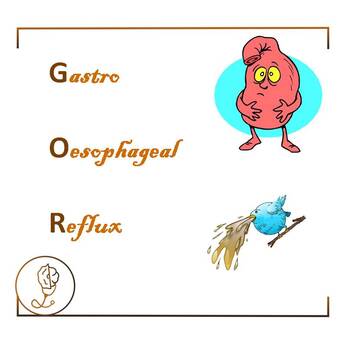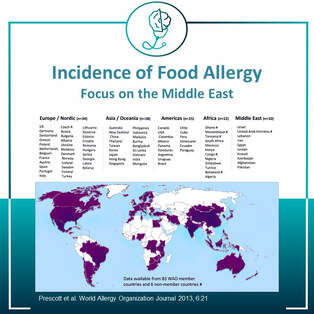Gastroesophageal Reflux (GOR)

FPIES and FPIP
20/02/2021
What is an Allergy?
04/03/2021It is likely one of the most common causes of concern for parents of infants/newborns.
Signs can sometimes be hard to understand, as not in all cases you will see the feed coming out.
This is what is commonly called “𝘴𝘪𝘭𝘦𝘯𝘵 𝘳𝘦𝘧𝘭𝘶𝘹”.
There are common behaviours that can be used to make that diagnosis, though all need to be put into context as not always it means the child has reflux.
So what are they?
- Back arching
- Unsettled when lying flat
- Need to wind in an upright position for long periods
- Need to fall asleep upright
- Frequent hiccups (stimulation of the phrenic nerve by acid in the oesophagus)
- Frequent feeding (feeding leads to the release of endorphins, decreasing pain caused by acid reflux – if not treated, can lead to food refusal)
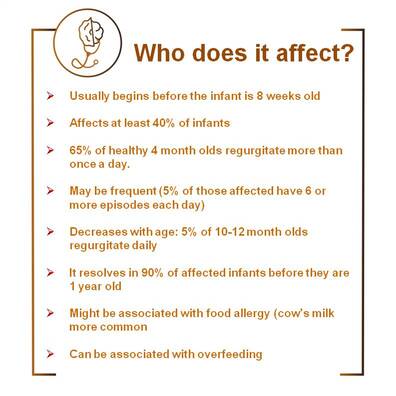
Do all need investigation and/or treatment?
- Not at all.
- In reality, most cases just need conservative measures.
When GOR becomes severe (leading to GORD – GastroEsophageal Reflux Disease), there are several aspects we need to worry about, and appropriate action is required.
- The following are the complications to pay attention to:
- Failure to thrive
- Respiratory compromise
- Acute life-threatening events
- Oesophagitis (endoscopy needed to make a diagnosis)
- Feed refusal
- Haematemesis (vomiting blood)
𝐈𝐧𝐯𝐞𝐬𝐭𝐢𝐠𝐚𝐭𝐢𝐨𝐧𝐬 𝐟𝐨𝐫 GOR
- Oesophageal pH study and/or impedance study
- Barium swallow/meal
- Upper GI (gastrointestinal) endoscopy
Do bear in mind that a significant proportion of GOR in infants might be associated with a milk allergy:
- 204 infants (<1yr) with GOR
- 40% respond to cow’s milk exclusion (hydrolysate)
- Responders typically had other GI symptoms and atopic features (eczema) (𝘐𝘢𝘤𝘰𝘯𝘰 𝘦𝘵 𝘢𝘭 𝘑 𝘈𝘭𝘭𝘦𝘳𝘨𝘺 𝘊𝘭𝘪𝘯 𝘐𝘮𝘮𝘶𝘯𝘰𝘭 𝟷𝟿𝟿𝟼; 𝟿𝟽: 𝟾𝟸𝟸-𝟽)
If you are worried and see any of the symptoms described above, go to your GP, and he/she will address those issues and eventually refer to a 𝐏𝐚𝐞𝐝𝐢𝐚𝐭𝐫𝐢𝐜𝐢𝐚𝐧, a 𝐏𝐚𝐞𝐝𝐢𝐚𝐭𝐫𝐢𝐜 𝐀𝐥𝐥𝐞𝐫𝐠𝐢𝐬𝐭 or 𝐃𝐢𝐞𝐭𝐢𝐭𝐢𝐚𝐧.
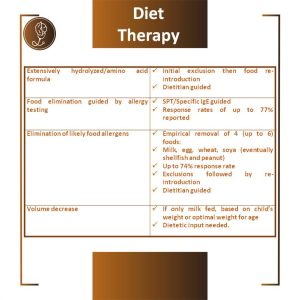
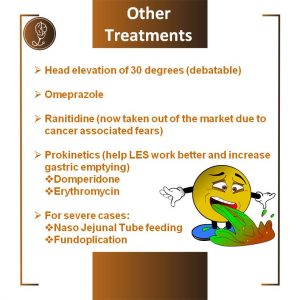
Do not try a Lactose Free formula if there are worries about a milk allergy! Lactose is the sugar in milk, not a protein.
Do not try medication for colic, as evidence suggests they are of no use. Often, it is either coincidental improvement or even the placebo effect on parents, as they feel something is being done.

